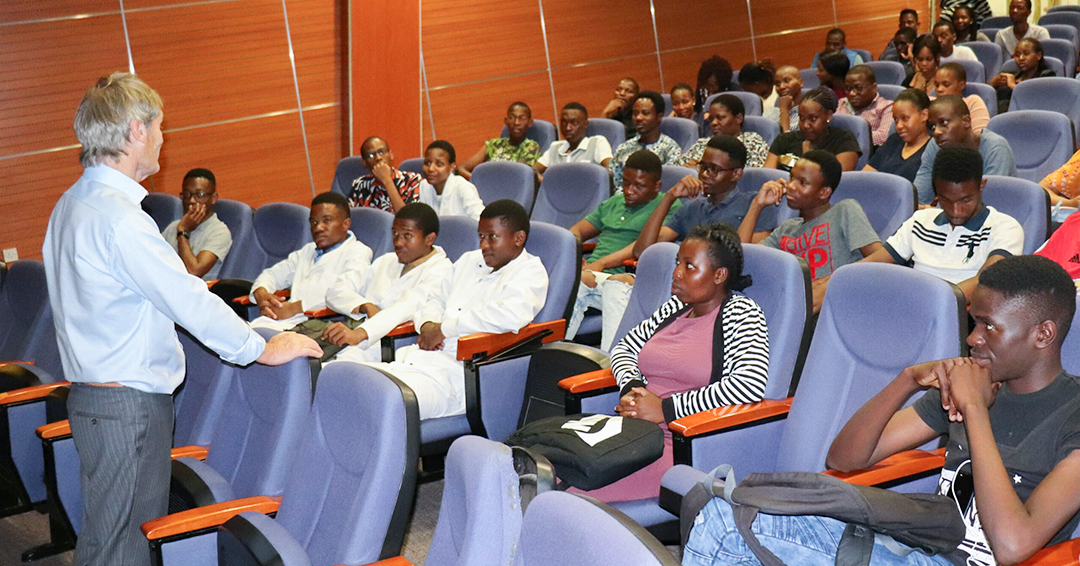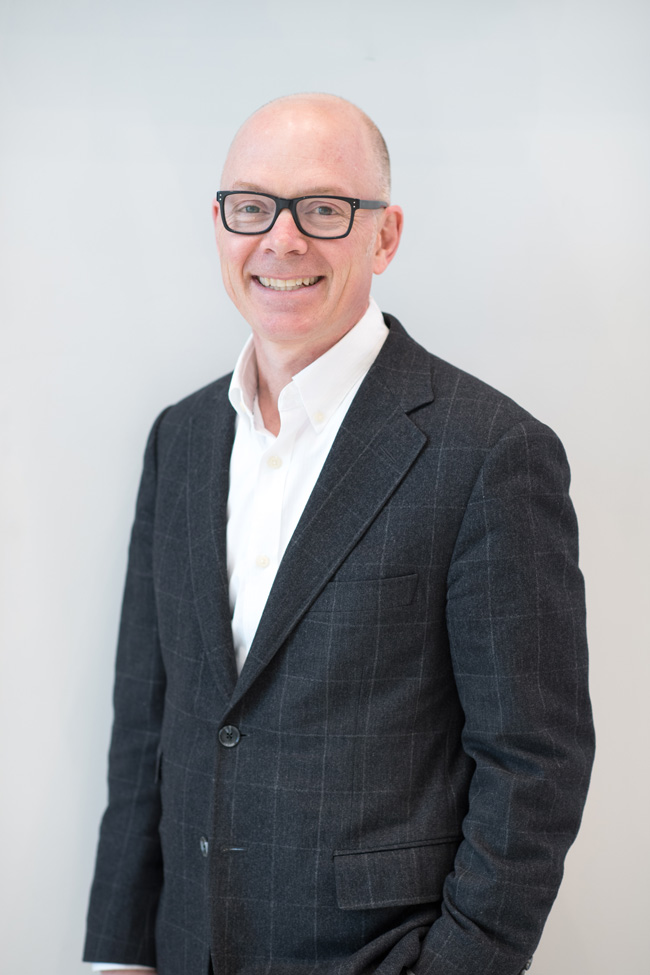
Epidemiology professor Robert Platt joins effort to support pharmacological education in the developing world
According to a recent report from the International Pharmaceutical Federation (FIP), Africa has 17 per cent of the world’s population and 25 per cent of the world’s disease, but less than three per cent of the global health workforce. To help address this shortage, a McGill epidemiology professor has joined an effort to support pharmacological education throughout sub-Saharan Africa.
Robert Platt, the Albert Boehringer (1st) Chair in Pharmacoepidemiology and Professor in both the Departments of Pediatrics and Epidemiology, Biostatistics and Occupational Health, is currently developing a series of five video lectures for the University of Addis Ababa in Ethiopia. Pharmacological students and practicing pharmacists throughout sub-Saharan Africa use the videos as part of their education and training.
Platt has completed one module on pharmacoepidemiology and drug safety research – his main area of expertise. A second module is in the works on polypharmacy, the simultaneous – and potentially dangerous – use of multiple prescription drugs at once.
The video series is being done on behalf of the Square Alumni Foundation, a London-based charity organization that supports pharmacy education in sub-Saharan Africa. Platt serves on the Foundation’s Scientific Advisory Committee, which devises and coordinates the Foundation’s educational programs.
The Square Alumni Foundation

The Square Alumni Foundation is the brainchild of Philip Harrison, a British-born graduate of the University College London School of Pharmacy who emigrated to Montreal in 1976 to work as a pharmaceutical executive. Following his retirement in 2014, Harrison created the Foundation as a way of giving back to his profession, and providing important knowledge about potentially life-saving drugs to a part of the world drastically underserved by qualified pharmacists.
“Sub-Saharan Africa is the poorest region in the world by any health care measure, whether it’s GDP, maternal or infant mortality, or life expectancy,” Harrison says. “Ethiopia, for example, has a population of 118 million people. And there are as many pharmacists in Ethiopia as there are in the Montreal area, which has a population of roughly 4 million.”
The report from the FIP, a global body which represents more than four million pharmacists, also claims the shortage of pharmacists across the continent means that about one-third of Africans do not have access to quality medicines or pharmaceutical services. Meanwhile, regulation and quality control around prescription drugs is also far less developed in Africa than it is elsewhere.
“A good example is antibiotics, which are prescribed in a relatively structured way in North America,” Platt says. “There are concerns everywhere, including in North America, about overuse of antibiotics and what that might to do to things such as antibiotic resistance. Bringing that knowledge to pharmacists in Africa is important.”
There is a growing demand for space in African universities for budding pharmacists, though many of them lack the resources to enter university. Donations to the Foundation help create scholarships for pharmacological students in Ethiopia, Namibia, Botswana and Malawi, with a possible expansion coming to Ghana and Uganda soon.
Potential spinoffs
Dr. Platt’s involvement with the Foundation is helping to raise McGill University’s profile in these countries and helping to build relationships with educational institutions, which could soon provide opportunities for student and faculty exchanges between schools.
“I’m excited about it,” Platt says. “McGill has a growing presence in global health. The possibilities are endless.”
